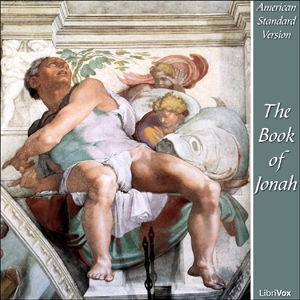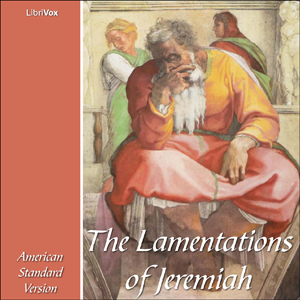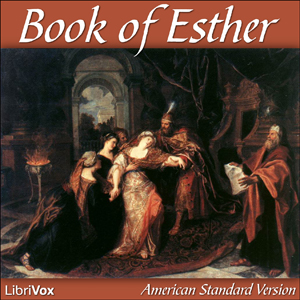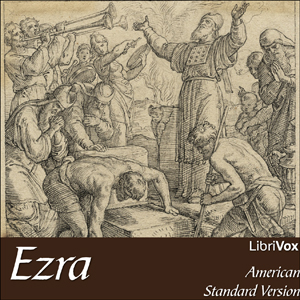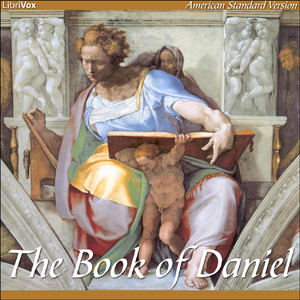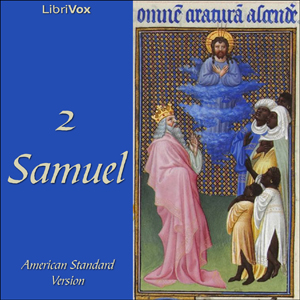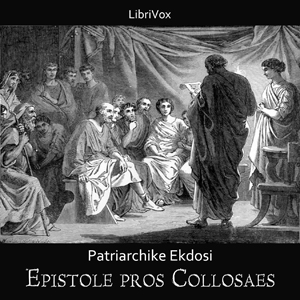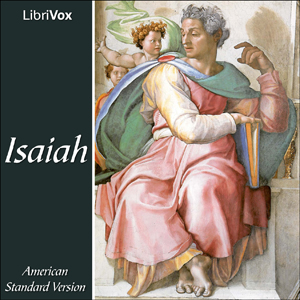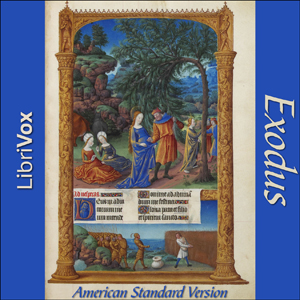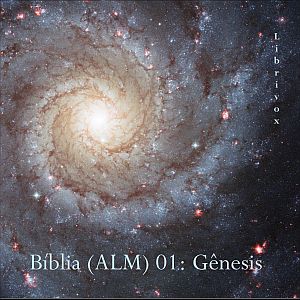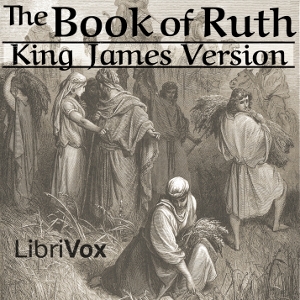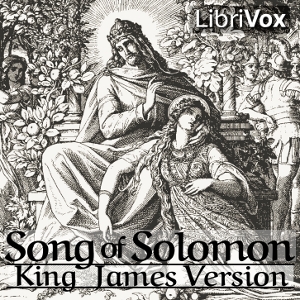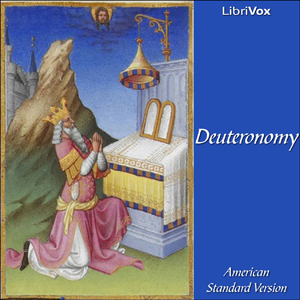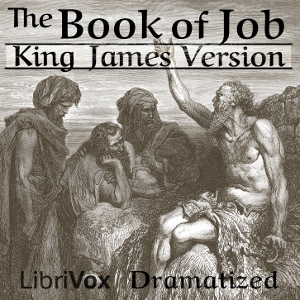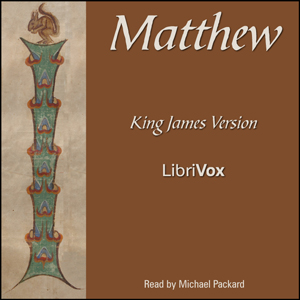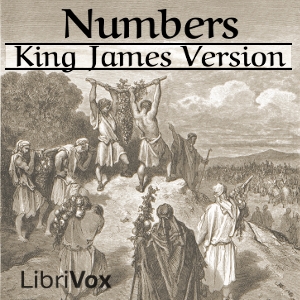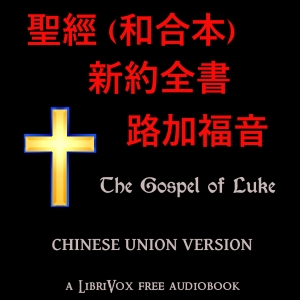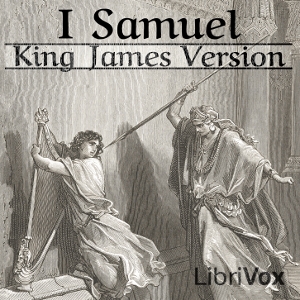The Chinese Union Version (CUV) (Chinese: 和合本; pinyin: héhé běn; literally "harmonized/united version") is the predominant Chinese language translation of the Bible used by Chinese Protestants. It is considered by many to be the Chinese Protestant’s Bible. The CUV in use today is the vernacular Mandarin version, published in two slightly different editions - the Shen Edition (神版) and the Shangti Edition (上帝版) - differing in the way the word “God” is translated.
聖經 (和合本)(簡稱和合本;或稱國語和合本、官話和合本),是今日華語人士最普遍使用的聖經譯本。此譯本的出版起源自1890年在上海舉行的傳教士大會,會中各差會派代表成立了三個委員會,各自負責翻譯《官話和合本》、《淺文理和合譯本》及《文理和合譯本》。
(Summaries from Wikipedia)
12 episodes
In the Hebrew Bible, the Book of Jonah is the fifth book in a series of books called the Minor Prophets. Unlike other prophetic books however, this book is not a record of a prophet’s words toward Israel. Instead of the poetry and prophetic prose of Isaiah or Lamentations, this book tells the story of a reluctant prophet who arguably becomes one of the most effective prophets in the entire Bible. (Summary by Wikipedia)
2 episodes

The book may be divided into three sections: Chapters 1–3 mainly consist of oracles of judgment. Chapters 4–5 of oracles of hope. Chapters 6–7 begins with judgment and moves to hope. Chapters 1–3 mainly consist of oracles of judgment. The judgment motif is so strong in this book that Micah only preached about judgment. Judgment in Micah is seen in the destruction of Samaria, in the coming of an invader against Jerusalem, in the greedy land-grabbers' loss of their land and in their being abandoned by Yahweh, in shame for the false prophets, in the siege of Jerusalem and the cleaning of the land from idolatry and militarism. Chapters 4–5 consist of oracles of hope. The prophet said that those conditions would not prevail forever. Judgment would come but a saved, chastened, and faithful remnant would survive. A new king from the line of David would be replace the present weak king on the throne. He would reign in the majesty of the name of Yahweh. His people would dwell securely and he would be great to the ends of earths. Chapters 6–7 begin with judgment and move to hope. Micah puts a protest on the people's lips, offering any religious response God cared to ask for. God's indictment becomes specific in 6:9–16. Violence, deception, and crooked business practices were rampant. They would bring desolation and destruction to the land. The reference to Omri and Ahab indicates that the same kinds of corruption that destroyed the northern kingdom had now spread to Judah. In conclusion, Micah's later hearers take his messages to heart. His words of hope gave them new heart to live as God's people in a darkened world.(Summary by Wikipedia)
2 episodes
Nahum prophesied, according to some, in the beginning of the reign of Ahaz (740s BC). Others, however, think that his prophecies are to be referred to the latter half of the reign of Hezekiah (700s BC). Probably the book was written in Jerusalem, where he witnessed the invasion of Sennacherib and the destruction of his host (2 Kings 19:35). And still others support the idea that the "book of vision" was written shortly before the fall of Nineveh (612 BCE). This theory is evidenced by the fact that the oracles must be dated after the Assyrian destruction of Thebes in 663 BCE as this event is mentioned in Nah 3:8. (Summary by Wikipedia)
1 episodes
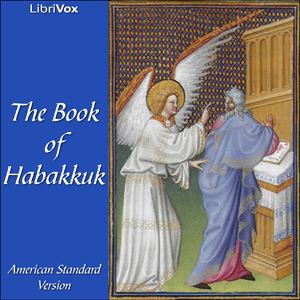
Practically nothing is known about Habakkuk's personal history, except for what can be inferred from the text of his book, which consists of five oracles about the Chaldeans (Babylonians) and a song of praise to God. Since the Chaldean rise to power is dated c. 612 BC, it is assumed he was active about that time, making him an early contemporary of Jeremiah and Zephaniah. Jewish sources, however, do not group him with those two prophets, who are often placed together, so it is possible that he was slightly earlier than they. Because the final chapter of his book is a song, it is sometimes assumed in Jewish tradition that he was a member of the tribe of Levi, which served as musicians in Solomon's Temple. According to the Zohar (Volume 1, page 8b) Habakkuk is the boy born to the Shunamite woman through Elisha's blessing. Habakkuk is unique among the prophets in that he openly questions the wisdom of God.[citation needed] In the first part of the first chapter, the Prophet sees the injustice among his people and asks why God does not take action: "1:2 Yahweh, how long will I cry, and you will not hear? I cry out to you 'Violence!' and will you not save?" - (World English Bible). (Summary by Wikipedia)
1 episodes
Malachi (or Malachias, מַלְאָכִי, Malʾaḫi, Mál'akhî) is a book of the Bible Old Testament and Jewish Tanakh, written by the prophet Malachi. Possibly this is not the name of the author, since Malachi means 'my messenger' or 'my angel' in Hebrew. (Summary by Wikipedia)
1 episodes
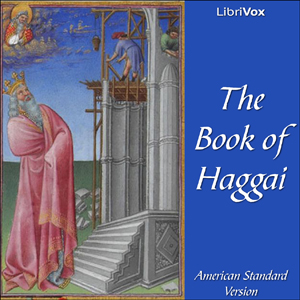
The Book of Haggai is a book of the Tanakh (Hebrew Bible) and of the Old Testament, written by the prophet Haggai. It was written in 520 BC some 18 years after Cyrus had conquered Babylon and issued a decree in 538 BC allowing the captive Jews to return to Judea. He saw the restoration of the temple as necessary for the restoration of the religious practices and a sense of peoplehood after a long exile. It consists of two brief, comprehensive chapters. The object of the prophet is generally urging the people to proceed with the rebuilding of the second Jerusalem temple in 521 BC after the return of the deportees. Haggai attributes a recent drought to the peoples' refusal to rebuild the temple, which he sees as key to Jerusalem’s glory. The book ends with the prediction of the downfall of kingdoms, with one Zerubbabel, governor of Judah, as the Lord’s chosen leader. The language here is not as finely wrought as in some other books of the minor prophets, yet the intent seems straightforward. (Summary by Wikipedia)
1 episodes
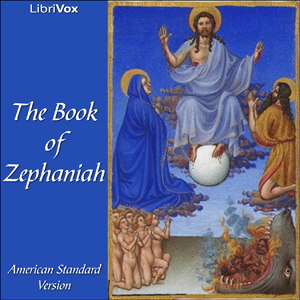
The superscription of the Book of Zephaniah attributes its authorship to “Zephaniah son of Cushi son of Gedaliah son of Amariah son of Hezekiah, in the days of King Josiah son of Amon of Judah” (1:1, NRSV). All that is known of Zephaniah comes from the text. The superscription of the book is lengthier than most and contains two features. The name Cushi, Zephaniah’s father, means ‘Ethiopian’. In a society where genealogy was considered extremely important because of God's covenant with Abraham and his descendants, the author may have felt compelled to establish his Hebrew lineage. In fact, this lineage is traced back to Hezekiah, who was king of Judah. The author of Zephaniah does not shrink from condemning the Cushites or Ethiopians. Chapter 2:12 contains a succinct but unequivocal message: “You also, O Ethiopians, / Shall be killed by my sword.” Zephaniah’s familial connection with King Hezekiah may have also legitimized his harsh indictment of the royal city in 3:1-7. (Summary by Wikipedia)
1 episodes
Published in 1904, The Twentieth Century New Testament is considered the first translation of the Bible into modern English. It was produced in Britain over a period of 15 years by approximately 20 people -- ministers, housewives, school teachers and businessmen -- who were united by their desire for a New Testament in the language of the people. They were advised by such scholars as J. Rendel Harris and Richard Weymouth so their rendering is quite accurate. In addition they made some effort at rearranging the New Testament books in the order scholars believe they were written -- Mark comes before Matthew, for instance. They also include brief introductions before each book. Though little-known today, the reader will find in The Twentieth Century New Testament a delightful translation that is rewarding both for in-depth study and personal reading. (Summary by Pleonic)
50 episodes

Zechariah’s ministry took place during the reign of Darius the Great (Zechariah 1:1), and was contemporary with Haggai in a post-exilic world after the fall of Jerusalem in 586/7 BC. Ezekiel and Jeremiah wrote prior to the fall of Jerusalem, while continuing to prophesy in the earlier exile period. Scholars believe Ezekiel, with his blending of ceremony and vision, heavily influenced the visionary works of Zechariah 1-8.Zechariah is specific about dating his writing (520-518 BC). During the Exile many Jews were taken to Babylon, where the prophets told them to make their homes (Jeremiah 29), suggesting they would spend a long period of time there. Eventually freedom did come to many Israelites, when Cyrus the Great overtook the Babylonians in 539 BC. In 538 BC, the famous Edict of Cyrus was released, and the first return took place under Shebazzar. After the death of Cyrus in 530 BC, Darius consolidated power and took office in 522 BC. His system divided the different colonies of the empire into easily manageable districts overseen by governors. Zerubbabel comes into the story, appointed by Darius as governor over the district of Yehud (Judah). Under the reign of Darius Zechariah also emerged, centering around the rebuilding of the temple. Unlike the Babylonians, the Persian Empire went to great lengths to keep “cordial relations” between vassal and lord. The rebuilding of the temple was encouraged by the leaders of the empire in hopes that it would strengthen the authorities in local contexts. This policy was good politics on the part of the Persians, and the Jews viewed it as a blessing by Yahweh. (Summary by Wikipedia)
3 episodes
The Book of Lamentations (Hebrew: אֵיכָה, Eikha, ʾēḫā(h)) is a book of the Bible Old Testament and Jewish Tanakh. It is traditionally read by the Jewish people on Tisha B'Av, the fast day that commemorates the destruction of the Temple in Jerusalem. It is called in the Hebrew canon 'Eikhah, meaning "How," being the formula for the commencement of a song of wailing. It is the first word of the book (see 2 Sam. 1:19-27). The Septuagint adopted the name rendered "Lamentations" (Greek threnoi = Hebrew qinoth) now in common use, to denote the character of the book, in which the prophet mourns over the desolations brought on Jerusalem and the Holy Land by the Chaldeans. In the Hebrew Bible it is placed among the Ketuvim, the Writings. (Summary by Wikipedia)
2 episodes
Первая книга Пятикнижия (Торы), Ветхаго Завета и всея Библии. Повествует о периоде от Сотворения мiра и человека до смерти Иосифа во Египте. Состоит из пятидесяти глав. (from Wikipedia)
50 episodes
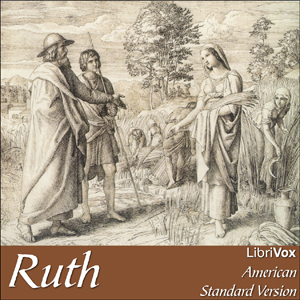
During the time of the Judges when there was a famine, an Israelite family from Bethlehem - Elimelech, his wife Naomi, and their sons Mahlon and Chilion - emigrate to the nearby country of Moab. Elimelech dies, and the sons marry two Moabite women: Mahlon marries Ruth and Chilion marries Orpah. Then Mahlon and Chilion also die. Naomi decides to return to Bethlehem. She tells her daughters-in-law to return to their own mothers, and remarry. Orpah reluctantly leaves; however, Ruth says, "Don't urge me to leave you or to turn back from you. Where you go I will go, and where you stay I will stay. Your people will be my people and your God my God. Where you die I will die, and there I will be buried. May the LORD deal with me, be it ever so severely, if anything but death separates you and me." (Ruth 1:16-17 NIV) The two women return to Bethlehem. It is the time of the barley harvest, and in order to support her mother-in-law and herself, Ruth goes to the fields to glean. The field she goes to belongs to a man named Boaz, who is kind to her because he has heard of her loyalty to her mother-in-law. Ruth tells her mother-in-law of Boaz's kindness, and she gleans in his field through the remainder of the harvest season. Boaz is a close relative of Naomi's husband's family. He is therefore obliged by the levirate law to marry Mahlon's widow, Ruth, in order to carry on his family line. Naomi sends Ruth to the threshing floor at night and tells her to "uncover the feet" of the sleeping Boaz. Ruth does so, Boaz awakes, and Ruth reminds him that he is "the one with the right to redeem." Boaz is willing to "redeem" Ruth, but there is a closer relative with a stronger right to do so. The next morning, Boaz discusses the issue with this man before the town elders. The other relative is unwilling to jeopardise the inheritance of his own estate by marrying Ruth, and so Boaz is free to do so. Boaz and Ruth get married and have a son named Obed (who by levirate customs is also considered a son or heir to Mahlon, and thus Naomi's grandson). In the genealogy which concludes the story, it is pointed out that Obed is the descendant of Perez the son of Judah, and the grandfather of David. (Summary by Wikipedia)
2 episodes
The book commences with a feast organized by Ahasuerus, initially for his court and dignitaries and afterwards for all inhabitants of Shushan. Ahasuerus orders his wife Vashti to display her beauty before the guests. She refuses, and the King's advisors warn that, if unpunished, her actions would inspire other wives to disobey their husbands. Ahasuerus removes her as queen. (Jews believe that she was executed, He then orders all young women to be presented to him, so he can choose a new queen to replace Vashti. One of these is Esther, who was orphaned at a young age and is being fostered by her uncle Mordechai." (Summary by Wikipedia)
2 episodes

Aπευθύνεται στις δώδεκα διασκορπισμένες φυλές του Ισραήλ και σε όλους όσους πιστεύουν στο όνομα του Κυρίου μας Ιησού Χριστού. Είναι μια σειρά προτροπών και ενθαρρύνσεων , που σχετίζεται άμεσα με την επί όρους ομιλία. Επικεντρώνεται στο να αναζωπυρώσει την γνήσια ζωντανή πίστη και στην εξάσκηση της μετάνοιας , της εμπιστοσύνης, της ταπείνωσης και της αυτοκυριαρχίας. Ο Άγιος Ιάκωβος είχε εκλεγεί από τους αποστόλους ως ο πρώτος αρχιεπίσκοπος της Ιερουσαλήμ. Ζούσε μια ζωή άγια, αυστηρή και ασκητική. Σύμφωνα με την παράδοση , ακριβώς πριν την πολιορκία της Ιερουσαλήμ , αφού άπιστοι Ιουδαίοι τον γκρέμισαν από τον ναό, τον λιθοβόλησαν μέχρι που τον σκότωσαν. It is addressed to the twelve tribes of Jerusalem which are scattered abroad and to every one that believes in the name of our Lord Jesus Christ. A series of admonitions and exhortations , it has many direct parallels with the Sermon on the Mount. He concentrates on rekindling true living faith and on the practice of repentance , trust, humility, patience, and self control. James was elected as the first bishop of Jerusalem by the apostles He led a holy strict and ascetic life. According to tradition , just before the besiege of Jerusalem, being thrown from the temple by unfaithful Jews was stoned to death. (Summary by peaceuntoyou)
5 episodes
God permits "Satan," or in some translations "the adversary" or "the accuser," to put the virtue of Job to the test, at first by giving him power over his property, but forbidding him to touch his person. Satan begins by taking away all of Job's riches, his livestock, his house, his servants, and his children; a series of four messengers informs him that they have perished in various tragedies. In the meantime, only three of Job's friends come to visit him in his misfortune — Eliphaz the Temanite, Bildad the Shuhite, and Zophar the Naamathite. A fourth, Elihu the Buzite, first begins talking in chapter 32 and bears a distinguished part in the dialogue; his arrival is not noted. The friends spend a week sitting on the ground with Job, without speaking, until Job at last breaks his silence and complains of his misery. (Summary by Wikipedia)
6 episodes
The history of the first return of exiles, in the first year of Cyrus the Great (536 B.C.), till the completion and dedication of the new Temple in Jerusalem, in the sixth year of Darius (515 B.C.). The history of the second return under Ezra, in the seventh year of Artaxerxes Longimanus, and of the events that took place at Jerusalem after Ezra's arrival there. The book thus contains memorabilia connected with the Jews, from the decree of Cyrus to the reformation by Ezra (456 B.C.), extending over a period of about eighty years. (Summary by Wikipedia)
3 episodes
The Book of Daniel (דניאל), originally written in Hebrew and Aramaic, is a book in both the Hebrew Bible (Tanakh) and the Christian Old Testament. The book is set during the Babylonian Captivity, a period when Jews were deported and exiled to Babylon following the Siege of Jerusalem of 597 BC. The book revolves around the figure of Daniel, an Israelite who becomes an adviser to Nebuchadnezzar, the ruler of Babylon from 605 BC - 562 BC. The book has two distinct parts: a series of six narratives (chapters one to six) and four apocalyptic visions (chapters seven to twelve). The narratives take the form of court stories which focus on tests of religious fidelity involving Daniel and his friends (chapters one, three and six), and Daniel's interpretation of royal dreams and visions (chapters two, four and five). In the second part of the book, Daniel recounts his reception of dreams, visions and angelic interpretations in the first person. (Summary by Wikipedia)
5 episodes
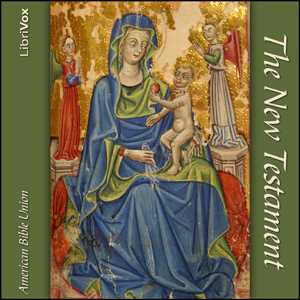
This Revised Testament has been prepared under the auspices of the American Bible Union, by the most competent scholars of the day. No expense has been spared to obtain the oldest translations of the Bible, copies of the ancient manuscripts, and other facilities to make the revision as perfect as possible. The paragraph form has been adopted in preference to the division by verse, which is a modern mode of division, never used in the ancient scriptures. But, for convenience of reference, the numbers of the verses are retained. All quotations from the Old Testament are distinctly indicated, and the poetic form is restored to those which appear as poetry in the original. The revisers have been guided in their labors by the following rules prescribed by the Union: RULES FOR THE REVISION OF THE ENGLISH NEW TESTAMENT. The received Greek text, critically edited, with known errors corrected, must be followed. The common English version must be the basis of revision, and only such alterations must be made as the exact meaning of the text and the existing state of the language may require. The exact meaning of the inspired text, as that text expressed it to those who understood the original Scriptures at the time they were first written, must be given in corresponding words and phrases, so far as they can be found in the English language, with the least possible obscurity or indefiniteness. (Summary by the American Bible Union Final Committee)
63 episodes
Παρουσιάζονται από τον ευαγγελιστή Ματθαίο όλα τα γεγονότα εκείνα που εξιστορούν την ζωή , τη διδασκαλία , το πάθος , το θάνατο και την ανάσταση του Ιησού Χριστού. Ο αναγνώστης μπορεί καθαρά να διακρίνει το μεγαλείο της ακεραιότητας , του θάρρους και της αυταπάρνησης του Κυρίου. Δεν δίστασε Ο Ιησούς Χριστός να επικρίνει και να κηρύξει ενάντια στην διδασκαλία των Φαρισαίων , αποκαλύπτοντας έτσι τα έργα τους και φανερώνοντας την αλήθεια. All those events that relate to us Jesus Christ’s life , teaching, death passion and resurrection are presented to us by the evangelist Matthew. The reader can vividly see the magnificence , dignity, and self denial that characterized our Lord. Jesus Christ did not hesitate to reprimand and preach against the teaching of the Pharisees thus exposing their evil deeds and revealing the truth. (Summary by Pella)
28 episodes
This 1871 revision of The Psalms by the American Bible Union is based on the "Common Version," another name for the 1833 revision of the King James Version of The Bible by Noah Webster. (Summary by Mark Penfold)
11 episodes
Das Evangelium nach Matthäus ist das erste Buch des Neuen Testaments und eines der vier kanonischen Evangelien. Es enthält einen Bericht über das Leben und die Lehren Jesu von Nazareth. The Gospel of Matthew is the first book of the New Testament and one of the four canonical gospels. It narrates the life and the teachings of Jesus of Nazareth. (Summary by Al-Kadi)
28 episodes
“The Books of Samuel (Hebrew: Sefer Sh’muel ספר שמואל) are part of the Tanakh (part of Judaism’s Hebrew Bible) and also of the Christian Old Testament. The work was originally written in Hebrew, and the Book(s) of Samuel originally formed a single text, as they are often considered today in Hebrew bibles. Together with what is now referred to as the Book(s) of Kings, the translators who created the Greek Septuagint divided the text into four books, which they named the Books of the Kingdoms. In the Latin Vulgate version, these then became the Books of the Kings, thus 1 and 2 Samuel were referred to as 1 and 2 Kings, with 3 and 4 Kings being what are called 1 and 2 Kings by the King James Bible and its successors.” (Summary by Wikipedia)
5 episodes
Richard Francis Weymouth was born on October 26, 1822 near Plymouth Dock, now known as Devonport, near Plymouth, Devonshire, in England. Dr. Weymouth was a Bible scholar and a philologist (a student of the origins of language), as well as a layman, in the English Baptist denomination. He edited "The Resultant Greek Text", after which he based his "New Testament in Modern Speech", which was published posthumously in 1903. He passed away on December 27, 1902 in Essex. His work is known for its simpler language and use in private reading.
(Summary by Mark Penfold)
5 episodes
The history of the kings of Judah and Israel until their downfall. (Summary by Joy Chan)
25 episodes
The Books of Chronicles (Hebrew Divrei Hayyamim, דברי הימים, Greek Paralipomenon, Παραλειπομένων) are part of the Hebrew Bible (Jewish Tanakh and Christian Old Testament). In the Masoretic Text, it appears as the first or last book of the Ketuvim (the latter arrangement also making it the final book of the Jewish bible). Chronicles largely parallels the Davidic narratives in the Books of Samuel and the Books of Kings. It appears in two parts (I & II Chronicles), immediately following 1 & 2 Samuel and 1 & 2 Kings as a summary of them with minor details sometimes added. The division of Chronicles and its place in the Christian canon of the Old Testament are based upon the Septuagint. The author of Chronicles, termed "the Chronicler," may also have written Ezra and Nehemiah. His work is an important source of information about Israel after the Babylonian exile. (Summary by Wikipedia)
8 episodes

"The Book of Judges (Hebrew: Sefer Shoftim) is a book of the Bible originally written in Hebrew. It appears in the Tanakh and in the Christian Old Testament. Its title refers to its contents; it contains the history of Biblical judges (not to be confused with modern judges), who helped rule and guide the ancient Israelites, and of their times. As Judges stands today, the last judge it mentions is Samson, and although there are two further stories, the traditional view is that Samson's exploits probably synchronise with the period immediately preceding Eli, who was both high priest and judge. Both academic views and traditional thought hence view the narrative of the judges as ending at Samson, picking up again at 1 Samuel 1:1 to consider Eli, and continuing through to 1 Samuel 7:2. As for the stories at the end of the Book, which are set in the same time period as the judges but discuss people other than the judges, there is much affinity between these and the Book of Ruth, and many people believe Ruth originally belonged amongst them. There were thirteen Biblical Judges." (Summary by Wikipedia)
5 episodes
The history of the Israelites from the death of Moses to the death of Joshua. (Summary by Joy Chan)
24 episodes
Γράφοντας αυτό το γράμμα ο Παύλος αποδεικνύει το βαθύ ενδιαφέρον του για την εκκλησία, καθώς προσεύχεται για αυτούς να πληρωθούν με την γνώση του θελήματος του Θεού . Τους προτρέπει να μη εμμένουν τόσο στις αισθήσεις , σε πράγματα δηλαδή που προορίζονται να φθαρούν και σχετίζονται με εντάλματα και ανθρώπινες διδασκαλίες.Να φρονούν και να σκέφτονται όχι τα επίγεια αλλά τα επουράνια τους τονίζει.Δείχνει το μέγεθος της θυσίας , τη διάθεση του Παύλου να πάσχει και έτσι να αναπληροί τα παθήματα που θα υπέφερε ο Χριστός, εάν ήταν εδώ στη γη. για χάρη της εκκλησίας .Δίνει έμφαση στο γεγονός ότι όλη η σοφία και η πνευματική κατανόηση μπορούν να βρεθούν στο Κύριο Ιησού Χριστό . Δίνει πρακτικές κατευθύνσεις για χριστιανική συμπεριφορά . Tους προτρέπει να νεκρώσουν τα έργα της σάρκας, και να ενδυθούν την αγάπη για να φέρουν τους καρπούς της .
4 episodes
"The Book of Isaiah (Hebrew: ספר ישעיה) is a book of the Bible traditionally attributed to the Prophet Isaiah, who lived in the second half of the 8th century BC. In the first 39 chapters, Isaiah prophesies doom for a sinful Judah and for all the nations of the world that oppose God. The last 27 chapters prophesy the restoration of the nation of Israel. This section includes the Songs of the Suffering Servant, four separate passages that Christians believe prefigure the coming of Jesus Christ, and which are otherwise traditionally thought to refer to the nation of Israel. This second of the book's two major sections also includes prophecies of a new creation in God's glorious future kingdom." (Summary from Wikipedia)
7 episodes
"Moses leads the Hebrews out of Egypt and through the wilderness to the Mountain of God: Mount Sinai. There Yahweh, through Moses, gives the Hebrews their laws and enters into a covenant with them, by which he will give them the land of Canaan in return for their faithfulness. The book ends with the construction of the Tabernacle." (Summary by Wikipedia)
8 episodes
A tradução feita por João Ferreira de Almeida é considerada um marco na história da Bíblia em português pois foi a primeira tradução do Novo Testamento a partir das línguas originais. O trabalho de João Ferreira de Almeida é para a língua portuguesa o que a Bíblia de Lutero é para alemã e a King James Version para a inglesa. Num trabalho que se estendeu por toda a sua vida, Almeida começou a tradução pelo Novo Testamento, dedicando-se ao Velho Testamento já em idade avançada. A tradução de Almeida é sem dúvida a mais difundida em Língua Portuguesa, mais modernamente em versões corrigidas e revisadas. Este projeto usa uma edição de 1860, reimpressão da segunda edição da Bíblia de Almeida, revista pouco antes da morte do tradutor. Esta é a gravação do primeiro livro do Antigo Testamento, Gênesis. (Introdução escrita por Leni)
10 episodes
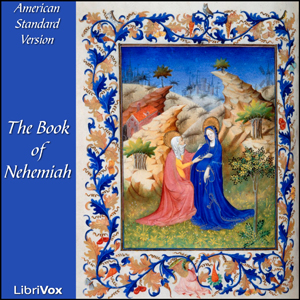
"The Book of Nehemiah, sometimes called the Second Book of Ezra, is a book of the Hebrew Bible. It is historically regarded as a continuation of the Book of Ezra, and the two are frequently taken together as Ezra-Nehemiah. Traditionally, the author of this book is believed to be Nehemiah himself. The date at which the book was written was probably about 431 - 430 BC, when Nehemiah had returned the second time to Jerusalem after his visit to Persia. The book consists of four parts: (1) An account of the rebuilding of the wall of Jerusalem, and of the register Nehemiah had found of those who had returned from Babylon. Details describe how Nehemiah became governor of Judah; various forms of opposition generated by Sanballat and others; describes earlier return under Zerubbabel (ch. 1-7). (2) An account of the state of religion among the Jews during this time (8-10). (3) Increase of the inhabitants of Jerusalem; the census of the adult male population, and names of the chiefs, together with lists of priests and Levites (11-12:1-26). 4) Dedication of the wall of Jerusalem, the arrangement of the temple officers, and the reforms carried out by Nehemiah (12:27-ch. 13)" (Summary by Wikipedia)
4 episodes
Originating in the circumstance of a multicultural church (primarily Jewish and Hellenistic), Ephesians addresses issues appropriate to the diverse religious and cultural backgrounds present in the community. Paul addresses hostility, division, and self-interest more than any other topic in the letter, leading many scholars to believe that his primary concern was not doctrinal, but behavioral.
Some theologians agree the main theme of Ephesians is in response to the newly converted Jews who often separated themselves from their Gentile brethren. The unity of the church, especially between Jew and Gentile believers, is the keynote of the book. (Summary from Wikipedia)
1 episodes
This short Old Testament book tells the story of Naomi and Ruth, Naomi's daughter-in-law and great-grandmother of King David. (Summary by TriciaG)
1 episodes
La Versión Reina-Valera Antigua fue traducida y publicada originalmente en 1569 por Casiodoro de Reina, después de doce años de intenso trabajo, y mas tarde publicada en 1602 con la revisión de Cipriano de Valera, quien dedicó mas de veinte años de su vida a esta revisión. (Introducción por Wikipedia)
8 episodes
Also known as Song of Songs, Solomon's Song of Songs, or as Canticles. The protagonists of the Song of Songs are a woman (identified in one verse as "the Shulamite") and a man, and the poem suggests movement from courtship to consummation. Additionally, the Song includes a chorus, the "daughters of Jerusalem."
In spite of the lack of explicitly religious content, the Song is often interpreted as an allegorical representation of the relationship of God and Israel, or for Christians, God and the Church or Christ and the human soul, as husband and wife. (Summary by Wikipedia)
Readers:Beloved: EzwaLover: Algy PugFriends: TriciaG
2 episodes
"Deuteronomy (Greek: Δευτερονόμιον, "second law") or Devarim (Hebrew: דְּבָרִים, literally "things" or "words") is the fifth book of the Hebrew Bible, and the fifth of five books of the Jewish Torah/Pentateuch. A large part of the book consists of five sermons delivered by Moses reviewing the previous forty years of wandering in the wilderness, and the future entering into the Promised Land. Its central element is a detailed law-code by which the Israelites are to live within the Promised Land. Theologically the book constitutes the renewing of the covenant between YHWH, the Jewish God, and the 'Children of Israel.'" (Summary by Wikipedia)
9 episodes
The Book of Job is one of the books of the Hebrew Bible. It relates the story of Job, his trials at the hands of Satan, his theological discussions with friends on the origins and nature of his suffering, his challenge to God, and finally a response from God. The Book itself comprises a didactic poem set in a prose framing device and has been called "the most profound and literary work of the entire Old Testament". The Book itself and its numerous exegeses are attempts to address the problem of evil. (Introduction from Wikipedia)
Cast:God: Dale BurgessSatan: Mickey RenoMessengers 1 & 4: amicrazy2uMessenger 2: Aidan BrackMessenger 3: J.S. KenneyJob: Algy PugJob's Wife: Roseanne SchmidtEliphaz the Temanite: Matthew ReeceBildad the Shuhite: David LawrenceZophar the Naamathite: EzwaElihu the son of Barachel the Buzite: Mark PenfoldNarrator: TriciaGAudio edited by: TriciaG
22 episodes
The First Epistle of Paul to the Corinthians, often referred to as First Corinthians (and written as 1 Corinthians), is the seventh book of the New Testament of the Bible. Paul of Tarsus composed this letter in Greek, to the Christians of Corinth, Greece.
Corinth was the meeting point of many nationalities because the main current of the trade between Asia and western Europe passed through its harbors.
Paul wrote 1 Corinthians to correct what he saw as erroneous views in the Corinthian church. Several sources informed Paul of conflicts within the church at Corinth. Paul then wrote this letter to the Corinthians, urging uniformity of belief ("that ye all speak the same thing and that there be no divisions among you," 1:10) and expounding Christian doctrine. (Summary modified from Wikipedia)
8 episodes
The Second Epistle of Paul to the Corinthians, often referred to as Second Corinthians (and written as 2 Corinthians), is the eighth book of the New Testament. The letter, originally written in Koine Greek, is from Paul of Tarsus (and Timothy) to the Christians of Corinth, Greece.
Paul defends his authority as an apostle. He also states the importance of forgiving others, and God’s new agreement that comes from the Spirit of the living God (2 Cor. 3:3), and the importance of being a person of Christ and giving generously to God’s people in Jerusalem, and ends with his own experience of how God changed his life. (Summary modified from Wikipedia)
7 episodes

The book of Proverbs is referred to as wisdom literature along with several others: the book of Job, Ecclesiastes, the Song of Solomon, and certain Psalms, known as wisdom psalms. Throughout Proverbs, wisdom (or the wise person) is compared and contrasted with foolishness (or the fool). 'Fool' in Proverbs indicates one who is lacking in morality and uninterested in correction, not one who is merely silly or playful. Wisdom is held up as something worth effort to attain and the reader is told that it starts with the person of God: "The fear of The Lord is the beginning of wisdom."
In addition, throughout Proverbs, wisdoms are mostly come from father to son or mother to son structure. This wisdom literature is concerned with the realities of human experience, from the mundane to the sublime, and with the relationship between that experience and the divine. Not only that, we can also find many wisdoms of woman over and over, especially we find reference to Wisdom as a female figure who speaks to the young man and invites him into her house. When we talk about this Woman Wisdom, it speaks frequently in the first person and identifies herself not just as the divine companion, but also as the source of order in society and success in life. Over and over in the book of Proverbs, it addressed a warning to the young man to avoid sexual relationships with a foreign or strange woman. (Introduction by Wikipedia)
31 episodes
The Gospel According to Matthew is one of the four canonical gospels, one of the three synoptic gospels, and the first book of the New Testament. It tells of the life, ministry, death, and resurrection of Jesus of Nazareth. (introduction by Wikipedia)
28 episodes
The Book of Isaiah is one of the Major Prophets in the Old Testament. Jews and Christians consider the Book of Isaiah a part of their Biblical canon. Christians believe that Isaiah prophesied the virgin birth of Jesus Christ (Isaiah 7:14, KJV): "Behold, a virgin shall conceive, and bear a son, and shall call his name Immanuel." Many of the New Testament teachings of Jesus refer to the book of Isaiah.
Gregory of Nyssa (c. 335–395), believes that the Prophet Esaias (Isaiah) "knew more perfectly than all others the mystery of the religion of the Gospel." Jerome (c. 342–420) also lauds the Prophet Esias, saying, "He was more of an Evangelist than a Prophet, because he described all of the Mysteries of the Church of Christ so vividly that you would assume he was not prophesying about the future, but rather was composing a history of past events." (Introduction from Wikipedia)
22 episodes
The Book of Numbers is the fourth book of the Hebrew Bible, and the fourth of five books of the Jewish Torah/Pentateuch. This book may be divided into three parts:
1. The numbering of the people at Sinai, and preparations for resuming their march (1–10:10).
2. An account of the journey from Sinai to Moab, the sending out of the spies and the report they brought back, the murmurings (eight times) of the people at the hardships by the way, and the subsequent exile into the wilderness for 40 years (10:11–21:20).
3. The transactions in the plain of Moab before crossing the Jordan River (21:21–36).
The period comprehended in the history extends from the second month of the second year, as measured from the Exodus, to the beginning of the eleventh month of the fortieth year, in all about thirty-seven years and nine months; a dreary period of wanderings. (Introduction from Wikipedia)
14 episodes
The Chinese Union Version (CUV) (Chinese: 和合本; pinyin: héhé běn; literally "harmonized/united version") is the predominant Chinese language translation of the Bible used by Chinese Protestants. It is considered by many to be the Chinese Protestant’s Bible. The CUV in use today is the vernacular Mandarin version, published in two slightly different editions - the Shen Edition (神版) and the Shangti Edition (上帝版) - differing in the way the word “God” is translated.《聖經和合本》(簡稱和合本;今指國語和合本,舊稱官話和合本),是今日華語人士最普遍使用的《聖經》譯本。此譯本的出版起源自1890年在上海舉行的傳教士大會,會中各差會派代表成立了三個委員會,各自負責翻譯官話、淺文理及深文理(文言文)譯本。 於1904年,《淺文理和合譯本》出版《新約》。《深文理和合譯本》於1906年出版《新約》。1907年大會計劃只譯一部文理譯本,於1919年出版《文理和合譯本》。1906年,官話的翻譯工作完成了《新約》;1919年,《舊約》的翻譯工作完成。在1919年正式出版時,《聖經》譯本名為《官話和合譯本》,從此就成了現今大多數華語教會採用的和合本《聖經》。
24 episodes
The book of Ezekiel follows the southern kingdom of Israel, Judah, into captivity by the Babylonians. Ezekiel cries judgement on the Israelites for their sins, but also sings of God's mercy and the ultimate salvation of His people. Aside from its Judeo-Christian truths, the powerful imagery and poetry found throughout the book make for an interesting study in ancient literature. (Introduction by Jenn Raimundo)
12 episodes
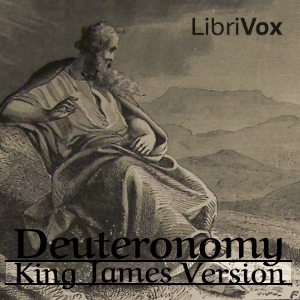
Deuteronomy is the fifth book of the Hebrew Bible, and of the Jewish Torah/Pentateuch. The Hebrew title, "[spoken] words", is taken from the opening phrase, "These are the words..."; the English title is from the Greek and Latin, both meaning "second law", a mistranslation of the Hebrew phrase mishneh ha-torah ha-zoth, "a copy of this law", in Deuteronomy 17:18.
The book consists of three sermons or speeches delivered to the Israelites by Moses on the plains of Moab, shortly before they enter the Promised Land. The first sermon recapitulates the forty years of wilderness wanderings which have led to this moment, and ends with an exhortation to observe the law (or teachings); the second reminds the Israelites of the need for exclusive allegiance to one God and observance of the laws he has given them, on which their possession of the land depends; and the third offers the comfort that even should Israel prove unfaithful and so lose the land, with repentance all can be restored.
One of its most significant verses is Deuteronomy 6:4, the Shema, which has become the definitive statement of Jewish identity: "Hear, O Israel: the Lord our God, the Lord is one." Verses 6:4-5 were also quoted by Jesus in Mark 12:28-34 as part of the Great Commandment. (Modified from Wikipedia)
13 episodes
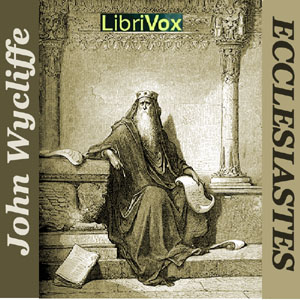
“... an alemaunde tre schal floure, a locuste schal be maad fat, and capparis schal be distried; for a man schal go in to the hous of his euerlastyngnesse...” - Eccl. xii, 5 (see Note below).
Traditionally composed by Solomon sometime around 950-970 BCE but dated on linguistic evidence somewhere in the third century, this meditation on the futility of mankind’s striving can bring comfort to those of firm or fragile faith, or of no faith at all. The text used here is a revision of Wycliffe's original translation, made by his follower John Purvey in the mid-1390s. Wycliffe's chapter divisions in some cases differ from those of later versions (the King James, for example).
The Preacher, in his musings on the human condition, enlivens his melancholy observations with flashes of angry despair, resentment and even grim humour, all powerfully conveyed by Wycliffe’s translation.
Note: The King James Version avoids a direct reference to the aphrodisiac qualities of capparis (caper-berries) in its rendering: “the Almond tree shall flourish, and the grashopper shall be a burden, and desire shall faile...” (Introduction by Martin Geeson)
12 episodes

